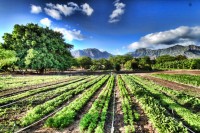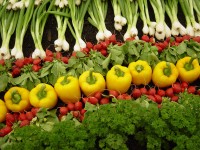Organic farming is an agricultural process involving improving soil quality. The process involves the use of crop rotation methods and application of green manure and compost. Organic farming is practiced in a very small part of farmlands in the world. However, as more people become aware of the benefits of organic farming, they embrace it. This awareness has resulted in an increase of organic farmers.
Modern organic farming techniques were introduced by British botanist Sir Albert Howard. He has given a detailed outline of his view of organic farming in his book “An Agricultural Testament”. Environmentalists were the first to embraced organic farming because of the effects of synthetic fertilizers on the surroundings. Other people have supported the idea largely because of their fear of consuming unsafe food.
Consumption of organic foods is on the rise. This increase is a direct result of people being aware of the safety of food they consume. It is important to make sure the food being sold to the people is genuinely organic. This is achievable by exercising stringent cultivation standards. In America, the USDA introduced a certification process in 2002 for enforcing adherence to the standards.
The problem of global warming could be eliminated if farmers switched to organic farming completely. Organic farming can help reduce the levels of carbon dioxide released into the atmosphere. This may not be possible since some of the farmers are still stuck to conventional methods of agriculture.
Many farmers are unwilling to make the switch to organic farming. One of the reasons for this is that organic farming requires one to adhere strictly to set standards. Another reason many people are not quick to embrace the farming methods is because of the lower productivity per acre. Productivity per acre of land is significantly lowered when practicing organic farming. This is not good news for farmers who want to make profits.
The cost of these organic foods is also high to the final consumer. Prices of organically produced foods exceed mainstream alternatives by up to 40 percent. Proponents of organic farming methods argue that people can find ways of buying the food at affordable prices. One can join Community Supported Agriculture organizations or shop from farmers markets. Consumers can also take advantage of sales and coupons.
In a move aimed at lowering consumer prices, large players in the organic food market seek products from other places. The materials may not be produced organically meaning the product will not meet expectations. These firms are no in breach of any USDA rules as that area is not regulated.
Organic farming has many benefits especially to the environment. However, many people who would like to embrace it have no idea how to go about it. The health of people has been affected by consuming foods laced with chemicals used in food production. All these problems are avoidable if more people know of the basics of organic farming. Even if it is not possible to completely switch to organic farming, it will be helpful if more farmers would practice it.

